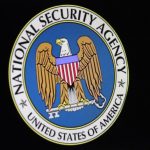Snowden: web restrictions are 'wrong in Russia, would be wrong anywhere'

Edward Snowden might be holed up in Russia, but that's not going to stop him from criticizing the country. While accepting the Norwegian Academy of Literature and Freedom of Expression’s Bjornson prize, the former NSA contractor used a speech to call Russia's attitude to internet freedom and homosexuality as "fundamentally wrong".
The US government has indicated that it has no intention of pardoning Snowden so he remains in exile -- for now, this is in Russia. Not shy to court controversy -- and possibly biting the hand that feeds -- he has hit out at the Russian government saying that its control and restrictions it places on the web are a "mistake in policy".
Snowden: Hilary Clinton's personal email server likely exposed sensitive national intelligence

If anyone else at the State Department made use of a personal email server to discuss sensitive information, they would have been fired and prosecuted, says Edward Snowden in a scathing attack on Hilary Clinton.
The former NSA worker hit out at the Democratic presidential candidate in an interview with Al Jazeera. He said that Clinton was probably aware that using a personal email address had exposed sensitive national intelligence, describing it as 'a problem'.
New Snowden documents show AT&T helped the NSA spy on internet traffic

The NSA has been helped by AT&T for decades in spying on huge quantities of internet traffic new-disclosed documents reveal. The astonishing relationship between the National Security Agency and the telecoms company goes far beyond any sort of arrangement or co-operation that came from other firms.
Evidence published by the New York Times shows that the NSA had arrangements in place with AT&T and Verizon, but the partnership with AT&T proved particularly lucrative. The communications giant added surveillance equipment to at least 17 of its web centers and was used as a testing ground for new spying technologies and techniques. All this is revealed in a new batch of documents provided by Edward Snowden.
Obama administration rules out pardoning Edward Snowden

The US government will continue to pursue Edward Snowden with a view to prosecuting him on espionage charges. The White House has rejected calls to pardon for Snowden who has been hailed as both a hero and a traitor for spilling the beans about NSA surveillance programs. The US government has sought to bring him to trial for compromising national security.
A We Are The People petition was signed by nearly 168,000 people who felt rather differently about the former NSA worker. "Edward Snowden is a national hero and should be immediately issued a full, free, and absolute pardon for any crimes he has committed or may have committed related to blowing the whistle on secret NSA surveillance programs".
The man who cared about your online privacy has died

Caspar Bowden, the privacy advocate who was warning about the activities of the NSA before Edward Snowden, has died. The co-founder of the Foundation for Information Policy Research lost his battle with cancer, and tributes have been paid by the world of technology.
Bowden, the former head of privacy at Microsoft, had long-warned about potential backdoors in software and services. He campaigned passionately for the privacy of the individual and voiced grave concerns about the NSA and the FISA Amendment Act. He sat on the board of Tor and was one of the most knowledgeable and well-loved figures on the privacy scene.
UK government illegally spied on Amnesty International

A court has revealed that the UK intelligence agency, GCHQ, illegally spied on human rights organization Amnesty International. It is an allegation that the agency had previously denied, but an email from the Investigatory Powers Tribunal backtracked on a judgement made in June which said no such spying had taken place.
The email was sent to Amnesty International yesterday, and while it conceded that the organization was indeed the subject of surveillance, no explanation has been offered. It is now clear that, for some reason, communications by Amnesty International were illegally intercepted, stored, and examined. What is not clear is when the spying happened, what data was collected and, more importantly, why it happened.
DuckDuckGo sees 600 percent growth off the back of NSA surveillance fears

For all those that say Edward Snowden’s leaks didn’t change public opinion on surveillance, "We’ve grown 600 percent since the surveillance revelations started two years ago", said DuckDuckGo CEO Gabe Weinberg on CNBC.
DuckDuckGo, for those unfamiliar, is a search engine that does not track users. To make money, it simply allows advertisers to bid on keyword search like 'cars', 'insurance', similar to what Google did in the early days.
Snowden files hacked by China and Russia

UK secret services say that the encrypted files Edward Snowden held from his time working at the NSA have been accessed by intelligence agencies in China and Russia. The Sunday Times reports that the top secret files have been hacked meaning that British and American spies could be identified and located.
Wanted by US authorities, Snowden has been in hiding for some time now. It is believed that the time he spent seeking refuge in Hong Kong and Moscow may have given security official the opportunity to access the data he held. Although the data was protected, it is thought that the encryption was hacked, and US and UK intelligence services have been "forced to intervene and lift their agents from operations to prevent them from being identified and killed".
Wikimedia secures connections with HTTPS encryption by default

There is a movement calling for the encryption of all web traffic. The cause of this could be laid at Edward Snowden's door, but there's no getting away from the fact that in recent years there is an increased interest in security and privacy. To this end, Wikimedia has announced that it is now using HTTPS to encrypt all of its traffic -- including that to Wikipedia.
We've already seen the US government embrace HTTPS, and companies like Google and Facebook are making it easier to control privacy settings. Apple has hit out at companies that fail to do enough to protect users' privacy, and Wiki media is taking the extra step of also implementing HSTS, just days after Microsoft announced that this would be supported by Internet Explorer 11 under Windows 7 and 8.1.
Amazon publishes opaque transparency report

Post-Snowden there is great interest in just what involvement the government has with technology firms. There are frequent requests from government agencies for information about users and the likes of Google, Snapchat, and even the NSA itself have all released transparency reports that reveal, in broad strokes, the number of requests for data they have received.
Amazon is the latest company to release a transparency report -- although the term really should be used in the loosest possible sense. The report includes scant details about the number of subpoenas, search warrants, court orders, and national security requests received in the first five months of 2015. The report is so vague as to be virtually meaningless.
USA Freedom Act passes unamended, limiting NSA surveillance after Snowden revelations

Today the US Senate passed the USA Freedom Act without amendments, signalling the start of the significant surveillance reform that has been called for since Edward Snowden blew the whistle on the agency's activities. It had already been determined that the bulk collection of phone metadata was illegal, and the expiry of Section 215 of the Patriot Act at the end of May brought this data collection to an end anyway.
The USA Freedom Act sets in concrete the end of the phone data collection program and is seen as a major victory for privacy advocates. It will come as good news to Snowden himself who will undoubtedly feel a sense of relief that his risk-taking paid off. The bill is still to be signed into law by President Obama, but this is now little more than a formality.
USA Freedom Act is blocked but NSA will stop phone data collection anyway

Privacy advocates in the US -- and, indeed, the world over -- had pinned great hopes on the USA Freedom Act bringing to an end the mass collection of phone records. Hitting the Senate for the second time this year, the Act was blocked in a 57-42 vote.
Section 215 of the Patriot Act expires on 31 May, and it had been hoped that the hype and momentum surrounding it would have helped push the USA Freedom Act through. Despite making through the House of Representative, the Bill failed to reach the 60 vote goal it needed to hit. But as of 1 June, the NSA will still not be collecting phone data. So what happened?
Yes, the NSA did act illegally

It has been hard to avoid talk of the NSA over the past year or so -- Edward Snowden's revelations blew the lid off convert surveillance that has been carried out by the US government. It has been a hugely divisive issue, many heralding Snowden as a hero, others as a traitor and has led people to question whether everyday software might include secret backdoors.
Included in the NSA's activities was the mass collection of metadata about phone calls made and receive by American citizens. Today the US court of appeals ruled that this data collection is illegal. With other countries adopting NSA-style surveillance tactics, the ruling opens up the possibility that the NSA could face further legal proceedings and probes.
The Sun newspaper launches anonymous Tor-based WikiLeaks-style SecureDrop

The likes of Julian Assange's WikiLeaks have set the standard for blowing the lid on huge stories based on tips from anonymous sources. Whistle-blowers such as Edward Snowden have brought to public attention stories which would otherwise have been kept hidden from the public, and it has been with the help of newspapers such as the Guardian that this information has been disseminated around the world.
Other newspapers are keen to ride on the coattails of those blazing a trail in the world of investigative journalism, and the latest to join the party is The Sun. Today, Murdoch-owned News Corp's newspaper and website launches SecureDrop -- a way for whistle-blowers to anonymously leave tip-offs that can be further investigated.
Snapchat transparency report shows legal requests hit a devilish 666 accounts

Largely due to the exposés in the media following Edward Snowden's NSA revelations, there is now great interest in security and privacy. From this sprang a new breed of report -- transparency reports detailing the number of data requests legal and governmental agencies made about a particular service.
Google, Facebook, Yahoo, Microsoft and Apple are among the companies who have released transparency reports, and the latest name on the list is Snapchat. As with other similar reports there is a limit to what they are able to reveal, but it does show that various agencies had an interest in no fewer than 666 Snapchat accounts.
Recent Headlines
Most Commented Stories
BetaNews, your source for breaking tech news, reviews, and in-depth reporting since 1998.
Regional iGaming Content
© 1998-2025 BetaNews, Inc. All Rights Reserved. About Us - Privacy Policy - Cookie Policy - Sitemap.